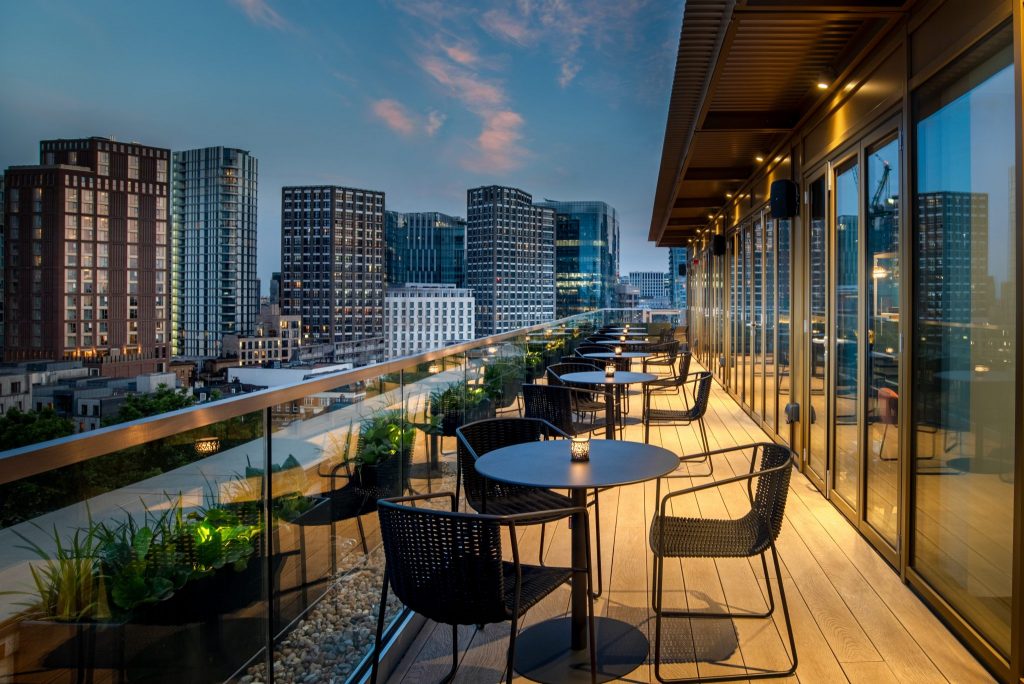Skift Take
Seizing smart, strategic opportunities coming out of the pandemic is top of mind at Hyatt, of course. But the Chicago-based company shouldn’t expect any bargains in its potential European brand hunt. The competition is too fierce.
Hyatt is almost back to profitability and planning a return to a pre-pandemic growth target.
The Chicago-based hotel company, which reported this week a small $9 million loss for the second quarter, has its eyes set on growing its European portfolio. This plan pre-dates the pandemic, but the health crisis delayed plans to beef up a presence across the region.
Now is the right time to go on a European hotel shopping excursion, Hyatt leaders say.
“We feel that we’ve come through the pandemic and [are] now into recovery mode at a healthy clip with respect to earnings and cashflow,” Hyatt CEO Mark Hoplamazian said on an investor call Wednesday. “As always, growing the company in a very deliberate, strategic way is our top priority.”
That deliberate, strategic growth largely centers on Europe, where Hyatt saw more opportunities to grow its brands before the health crisis. The company is currently paying attention to smaller brands and “groupings of hotels” there as potential acquisition targets, Hoplamazian said.
The focus on Europe follows Hoplamazian’s remarks earlier this summer the company saw more franchise growth opportunities for his company across the U.S., Europe, and South America rather than Asia.
“I would say Asia is trailing all of that by a wide margin because it’s just not a very penetrable franchise market,” Hoplamazian said in June at the Goldman Sachs Travel and Leisure Conference.
But just because one is focused on making a deal doesn’t mean it is going to pan out. There are plenty of hospitality investors waiting in the wings for hotel deals and transactions to pick up as a result of the pandemic, but a combination of government relief and lender flexibility has kept properties from trading.
European hotels saw less of a drop in value than properties in the U.S. during the pandemic despite worse performance, but Hoplamazian was confident transaction activity would pick up in the coming months.
“While the deal volume there has been slow today, we are tracking a number of different potential opportunities in the hopes that we’ll see some things freed up over the coming year,” he added.
The more targeted growth rather than looking to link up with a bigger European brand like Accor — which has a similar newfound focus on lifestyle and leisure hotels like Hyatt — matches with what Marriott leaders predicted last week with respect to future industry consolidation.
Leeny Oberg, Marriott’s chief financial officer, at a hotel conference last week noted future brand acquisitions across the industry would likely stem from one of the bigger companies looking to fill in a gap to its network.
AC Hotels, which Marriott partnered with in 2011 before eventually acquiring, gave the company more reach into Europe. Acquiring South Africa-based Protea Hotels in 2014 gave the company a significant presence in sub-Saharan Africa.
“You may see some of these smaller transactions that follow a pattern where we have a small regional player that allowed us to get a footprint in a market where we struggled to grow,” Marriott CEO Anthony Capuano said last week.
The Numbers
Hyatt’s relatively minor $9 million loss last quarter is still a vast improvement over the company’s performance over the last year. Hyatt lost $236 million during the second quarter of 2020 and $304 million in the first quarter of this year.
While its second quarter figure is an improvement, Hyatt is the only major hotel company to report a loss so far during earnings season.
Company leaders emphasized more optimistic numbers, like its positive cash flow and $55 million in adjusted earnings before interest, taxes, depreciation, and amortization.
“We are very encouraged by the rate at which our business is recovering,” said Joan Bottarini, Hyatt’s chief financial officer. “We anticipate the momentum to continue in future quarters.”
Group Optimism
Hyatt leaders have been the most optimistic around the idea group business would rally back to life faster than corporate travel.
While Marriott leaders earlier in the week were encouraged by the return of group business, they emphasized smaller group business as well as corporate travel’s recovery potential over massive conventions.
Hyatt had much more of a bullish outlook on city-wide conventions that host thousands of people and require major room blocks at urban hotels.
A quarter of Hyatt’s group business stems from city-wide conventions, with 70 percent of those bookings for the first half of next year.
While overall forward group business activity into next year is about 15 percent off 2019 levels, Hyatt leaders think they can close the gap based on the level of inquiries they have on potential events.
“Is there a downside potential? Sure, restrictions could come back, but there’s a ton of very acute demand, especially among corporates to get back together,” Hoplamazian said.
Have a confidential tip for Skift? Get in touch
Tags: coronavirus, coronavirus recovery, europe, hyatt, mergers and acquisitions
Photo credit: Hyatt is considering smaller brand acquisitions across Europe to fuel growth (pictured: the view from the Hyatt Place London City East). Hyatt
